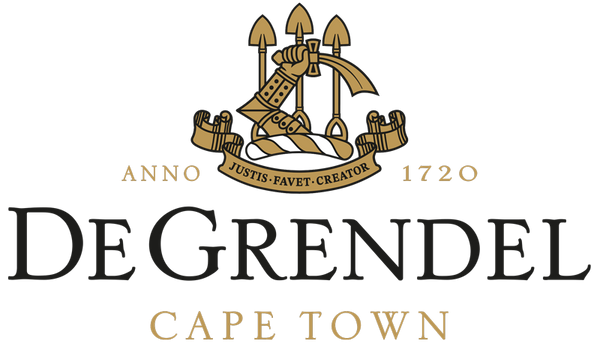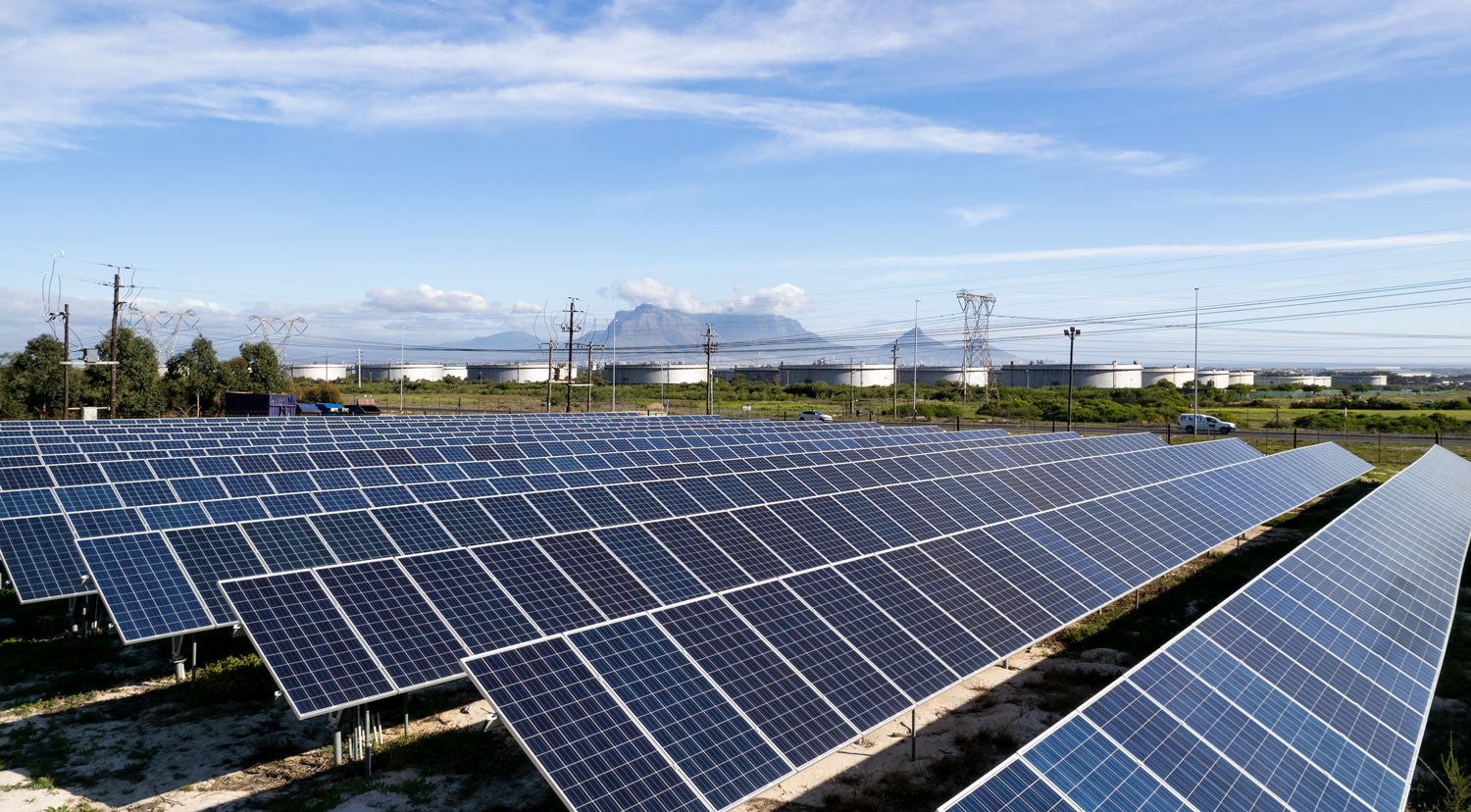
Sustainability
The Graaff family have a deep respect for nature and the environment.
Sustainability is not a new concept or a one-off project at De Grendel, where four generations of the Graaff family have been responsible for stewardship of the heritage and natural environment of one of South Africa’s oldest working farms for more than a century.
The Graaff family motto is Justis Favet Creator (The Creator Favours Justice) and it underpins the De Grendel philosophy of a shared history, shared responsibility and shared future for all those who live and work on the farm. Responsibility to the environment and responsibility to the people of De Grendel work hand-in-hand, driving a vision to do business with integrity and respect, to continue building De Grendel as a sustainable enterprise at the centre of a successful community.
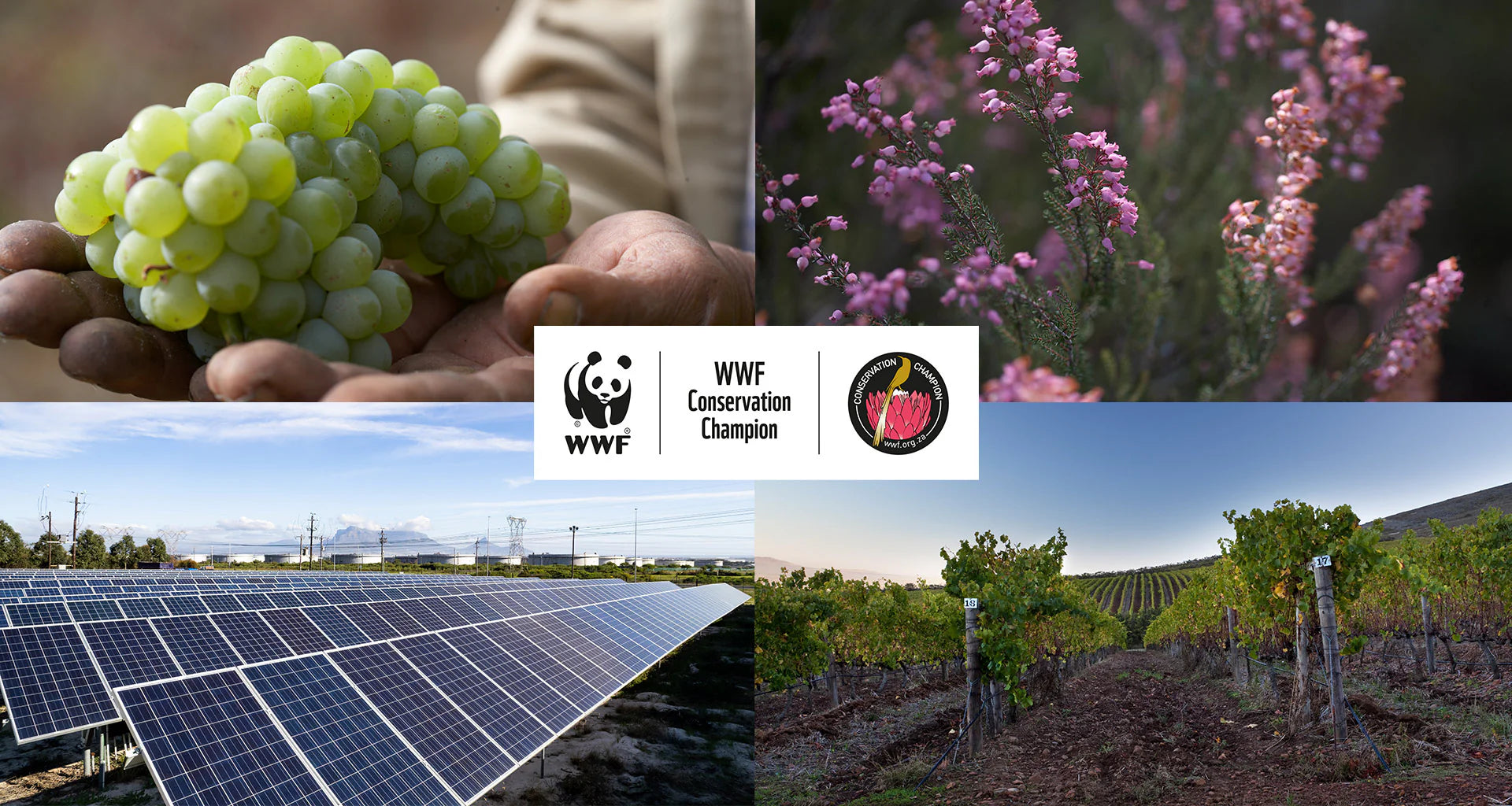
WWF Conservation Champion
De Grendel wine estate’s long-standing commitment to environmental conservation and sustainable farming has been recognised with Conservation Champion status by the WWF, the world’s leading independent conservation organisation.
For the historic Durbanville farm, becoming a WWF Conservation Champion recognises the respect for nature and the environment developed over four generations of the Graaff family’s stewardship of De Grendel.
De Grendel joins more than 50 of South Africa’s leading wine farms that have voluntarily committed to farm regeneratively, enhance biodiversity, and maintain a healthy ecosystem that provides valuable ecosystem services that extend beyond individual farms. As Conservation Champions, these landowners also implement energy and water efficiency measures, while the WWF assists with developing environmental management plans, priority actions and targets.
De Grendel was an early member of the WWF Biodiversity and Wine Initiative (BWI) and has long been certified for Integrated Production of Wine (IPW), the SA wine industry’s environmental sustainability standard.
A sustainable agriculture enterprise on De Grendel is balanced with conservation, with 25% of the 422ha farm set aside as a conservation area to protect the Renosterveld habitat, eradicate invasive alien species and return indigenous game to the area. Visitors to De Grendel can experience the farm’s natural environment and conservation efforts on guided farm tours.
Clearing of Invasive Species
De Grendel has cleared more than 50 hectares of the invasive alien Acacia salinga (Port Jackson) over the past two decades, an operation that is ongoing. The uprooted trees are ‘chipped’ and turned into compost to improve less fertile areas of the farm, while the cleared areas are seeded with Cynodon dactylon (“vaalkweek”), which is indigenous to the Cape. The Cynodon planting provides good grazing and plays an important role in preventing soil erosion in the cleared areas.
Returning Game - Conservation Meets Tourism
De Grendel has undertaken a programme of returning indigenous game to the farm, working towards bringing the ecosystem back into natural balance. There is a well-established herd of more than 25 eland in the conservation area, along with growing families of bontebok and red hartebeest. The game is in a healthy breeding state and will gradually be supplemented by the return of further indigenous species.
Cape Town locals now have the opportunity for a safari-style game viewing experience on their doorstep, along with picnics with spectacular views over the farm and the city to Table Bay and Table Mountain – a key attraction for foreign tourists as well.
Proudly Carbon Negative
A carbon audit conducted in accordance with the ISO 14064 standard assessed the greenhouse gasses emitted and absorbed through De Grendel’s operations and established that the farm is a net carbon sink. This means that the farming and business operations release less carbon into the air than is absorbed by the vegetation on the farm.
Solar Energy
More than a third of the De Grendel operation is powered by a solar photovoltaic (PV) plant that consistently exceeds its targeted output and contributes substantially to sustainability. The switch to PV energy has further reduced De Grendel’s carbon footprint and reliance on the national grid, while resulting in cost savings that both improve profitability and protect employment in South Africa’s high-cost energy environment.
The initial 210kWp installation has already achieved payback and is in process of being upgraded to 500kWp capacity.
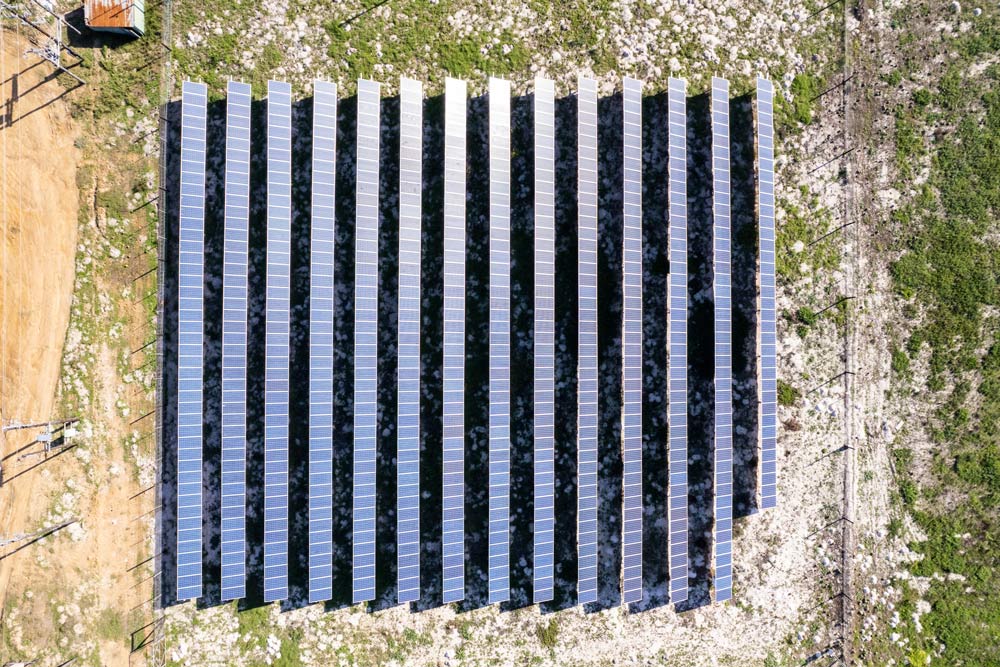
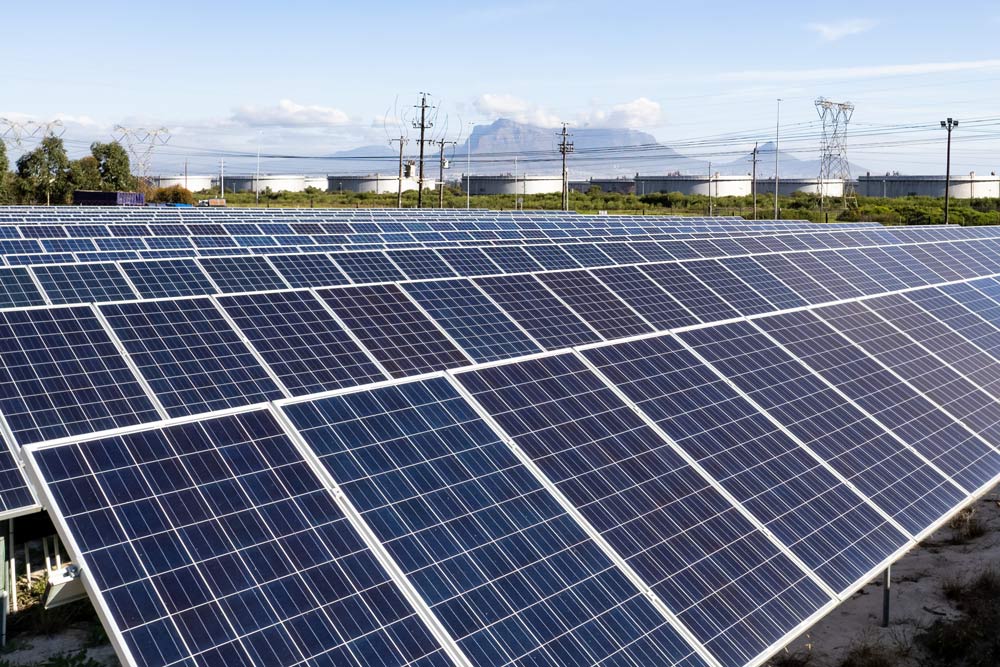
Treading Lighter
De Grendel’s shift to lighter-weight bottles for its Sauvignon Blanc, Rosé, and Viognier production, over 430 000 bottles impact positively on the carbon impact and costs of bottle production and transportation of the bottles and the finished product. The lighter-weight bottles account for an average of 13% saving in weight.
Waste Not
All wine boxes and other packing materials from on-site wine sales, some 3 000 boxes and 18 000 bottles per year are sent for recycling, while boxes in good condition are re-used.
Waste from cellar operations during harvest and production is composted and used to improve the levels of organic matter in the farm soils.
Water-Wise
South Africa is a water-scarce country, frequently subject to droughts which are worsening due to climate change. Irrigation on De Grendel uses only treated water and wastewater from the cellar. Technology to continuously monitor soil moisture has resulted in 40% annual savings on irrigation water, as the soil is only irrigated when needed.
Using water-wise principles, a series of agricultural drains capture storm water through the wet season and transfer it to the storage dam.
